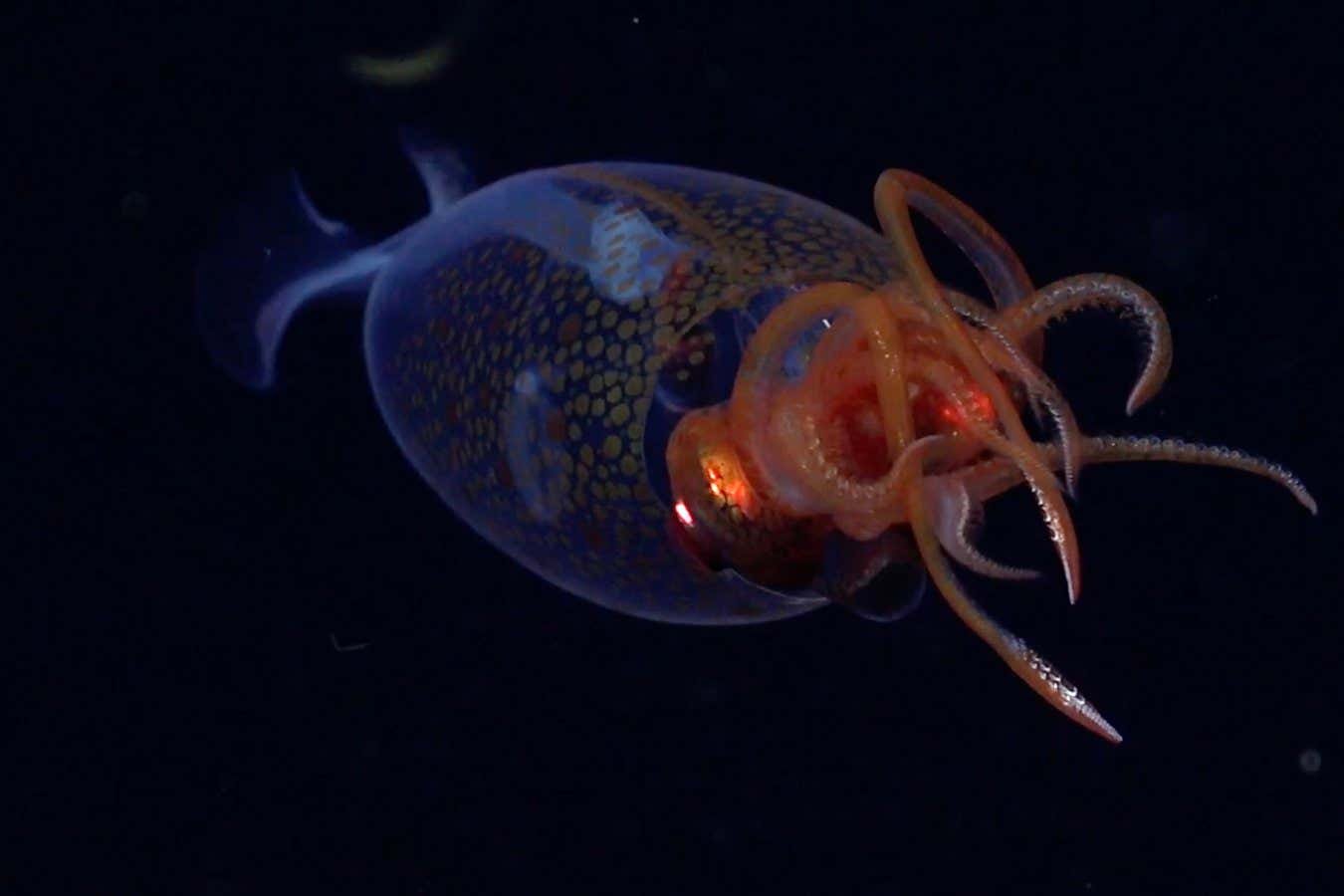The first confirmed live observation of the colossal octopus
Rov Subastian/Schmidt Ocean Institute
A colossal octopus – the large invertebrate animal on the planet – has been filmed alive in its wild habitat for the first time.
In decades, the Kraken-like colossal octopus (Mesonychotuthis Hamilony) Was more myth than reality: scientists had only a vague sense of its appearance from the remains of its remains found in the stomach of whales eating the molluses. In fact, it was through these remains that the species was officially described by zoologists in 1925.
Finlly, in 1981, fishermen in Antarctica accidentally rolled up a vivid colossal octopus in their fishing nets. Since then, the animals have sometimes been killed as a fisherman by -catch or are in the country dead.
Last month, a vessel from the Schmidt Ocean Institute, an American-based non-propitite organization, South South Sandwich Islands and live streaming of the footage of their remote controlled deep-sea cameras as an online viewer marked a colossal squid.
The action on the tip sent the researchers the high resolution foot to independent octopus experts. The experts confirmed that the online viewer’s violation was correct: the squid had characteristic hooks Allon sucks on his eight arms, which is a hallmark of the colossal octopus. It struck at 600 meters below the water surface.
While colossal octopus is believed to grow up to 7 meters in length and 500 kg of weight, octopus caught on the camera was a member 30 centimeters in length: a baby.
“It’s amazing that every time we go down into the deep sea, we find something new and exciting,” says Jyotics Virmani of the Schmidt Ocean Institute.
A colossal squid may have already been filmed in its natural habitat by 2023 by researchers from another US-based non-profit, colossal-but vision could not be confirmed because the recordings were too low quality. The new squid recording may suggest that the recordings in 2023 really collect a colossal octopus. “It’s the same size, the same color, similar depths, both in the southern Ocean,” says Matt Mulennan in colossal, who still intervenes in further confirmation.
However, there is no food image of an adult colossal octopus in nature, and the life of these giant invertebrates is still mysterious, says Steve O’Shea, A at Auckland University of Technology, New Zealand, who invented the name “Colossal Squid” in the early 2000s. He ounces alld the animals as “seriously evil citizens of the deep”, but are now convinced that they are more like “gigantic gelatinus -ticks, a simple exuberant surroundings in the water column near the seabed.”
Topics:
